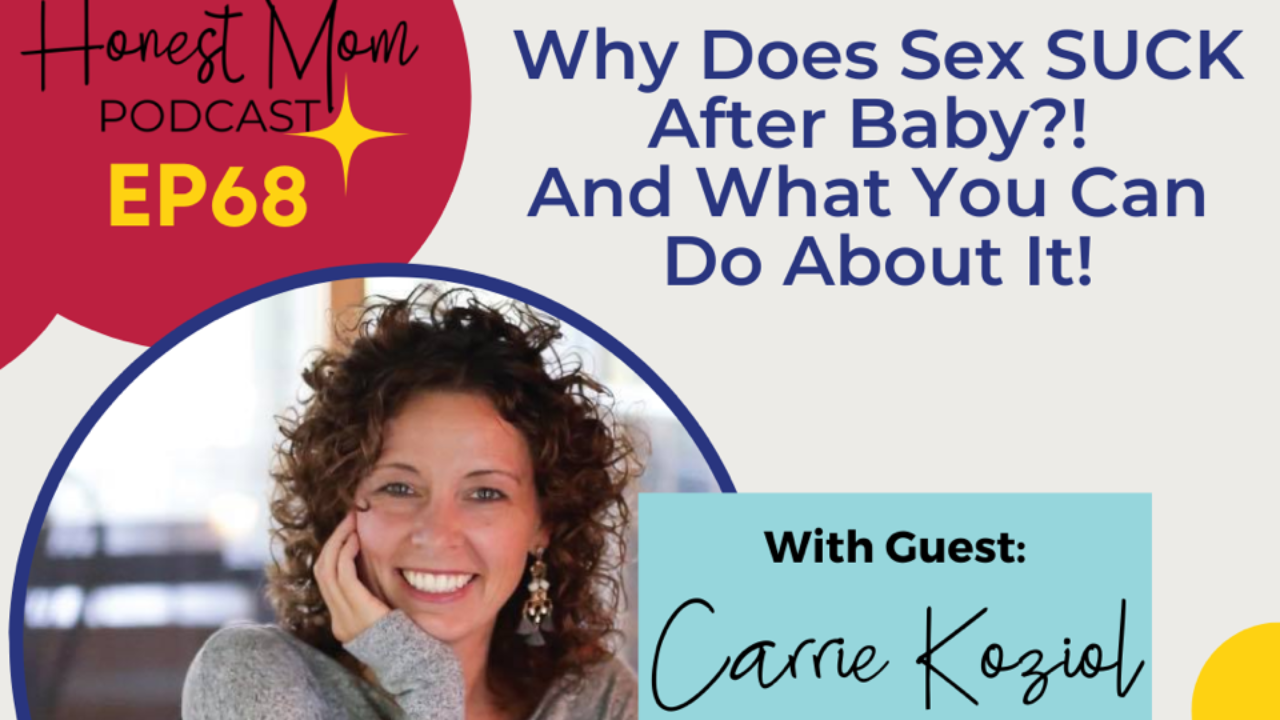The Honest Mom Podcast: Why Does Sex Suck After Baby...And What You Can Do

Have you met Michelle Mansfield, author of The Honest Mom Project and host of The Honest Mom podcast? Let me introduce you to one of the most “real” women you will ever meet. Unafraid of the narrative that the journey to motherhood should be bliss, Michelle tackles topics that shatter the shame most women feel when questioning the expectations in their lives as mothers. My love for tackling taboo topics combined with her no-holds-barred style of interviewing led to one of the most honest discussions about sex after baby in an episode she named “Why does sex SUCK after baby?! And What You Can Do About It.”
Here's the thing...as a Women’s Health Physical Therapist who spent over ten years in a clinical setting working with postpartum women, I heard the same stories repeatedly. They received little to no guidance for returning to a vibrant and robust sexual life after the birth of their babies. Rushed providers would throw out one-liners like “Just relax” or “Have a glass of wine” during the 6-week postpartum visit and when women continued to experience discomfort during sex, they would often just “white knuckle” their way through the experience thinking this was their new normal.
While every woman is different and every situation is unique, there are 3 main reasons why women either don’t want to have intercourse or don’t enjoy it after the birth of their baby: Physical reasons (like dryness or discomfort), Emotional reasons (like resentment or fatigue or the feeling of being “touched out”) and Body Image issues.
Physical barriers like pain and discomfort can be due to decreased lubrication, incisions and scars, skin infections, and vaginismus. Vaginal dryness is most often caused by a decrease in estrogen, which is common after birth but can also be affected by breastfeeding, certain medication, and insufficient time “preheating the oven.” Postpartum women may need to use additional lubrication, which can be applied to the vulvovaginal region and on anything that will penetrate the vagina, such as a penis or pleasure aid. There are three main categories of lubricants: water-based, silicone-based, and oil-based. I go into greater detail in the podcast regarding the pros and cons of each, so listen if you want to know which one is best for you!
Regarding incisions and scars after birth, these can result from perineal tears, episiotomies, or C-sections. These incisions, once fully healed, deserve to be massaged to prevent pain with penetration and/or deeper thrusting.
Skin infections often require a medical provider’s help, but you can do your part by trying not to disrupt the vaginal microbiome by introducing harmful chemicals like douches or soaps and other products with perfumes and detergents.
Vaginismus is a fancy term for the guarding, muscle spasms, and/or pain that accompany penetration. It’s a common diagnosis seen in physical therapy settings. Its treatment approach can involve using dilators to stretch the walls of the vagina and neurological down-training techniques to get your “fight or flight” system to ease up.
There are more than just physical reasons for noticing less enjoyment with or motivation for having sex after the birth of a baby. Michelle and I had a great time discussing the “real” issues that pop up in the bedroom (and all the house rooms, for that matter). While your life is hardly recognizable, your partner often returns to a fairly normal status quo. That, combined with the fact that you are tired to the very bone and have a tiny human sucking you dry (often literally!) all create the perfect storm that serves to be a giant lady boner killer. If anyone knows how to keep it real in this department, it’s Michelle! I’m still laughing about some of her contributions to this conversation!!!
And lastly, sometimes our body image and self-esteem take a real dive right along with our sex drive. Coincidence? I think not. It’s never been more important for us to surround ourselves with positive images of REAL postpartum bodies and to change the internal narrative we’ve been telling ourselves. “My belly is saggy and flabby” can become “My belly is a miracle; if I can grow a baby, I can do anything; I honor the power AND the pudginess!”
We talked about so much more, including boobs, scheduling sex, and all my favorite get-you-in-the-mood tips. With Michelle driving the ship, you’ll feel much more like you’re chatting with girlfriends than listening to a podcast! Make sure you check out the podcast episode on Apple Podcast.

